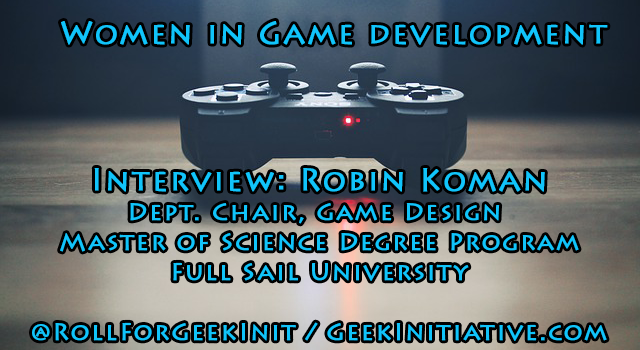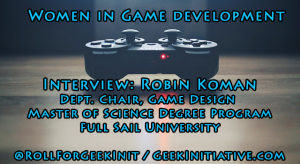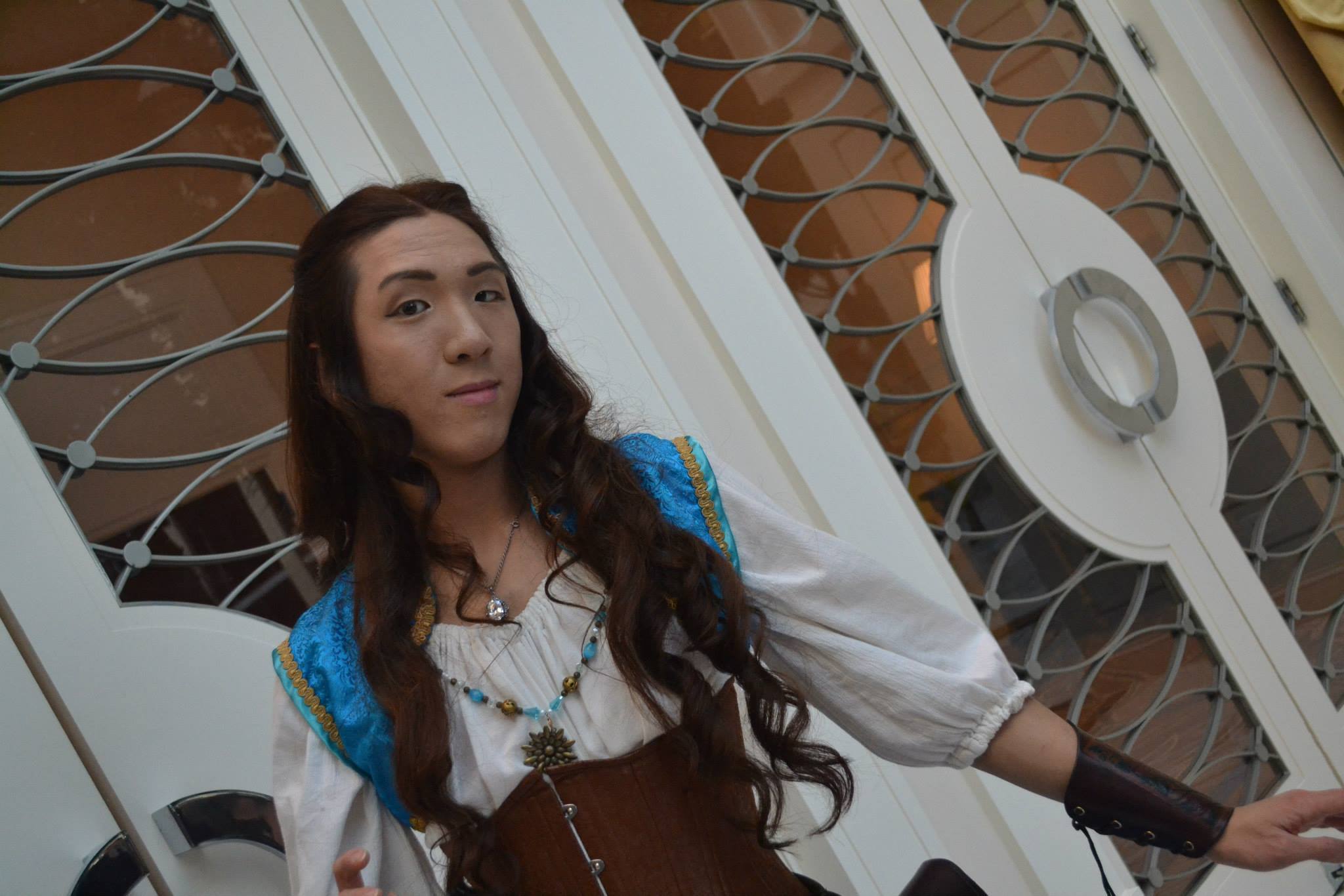As I opened Marvel’s Storm #1 a few months ago, I immediately noticed a full-page ad for Full Sail University on the front cover. The ad featured women in game design. Since there’s a lot of discussion and debate surrounding the inequity of women in game development (especially with the GamerGate controversy), I decided to reach out to the school to see what women in the field have to say.
Full Sail University connected me to Robin Koman, Department Chair, Game Design Master of Science Degree Program at their school. She answered questions regarding opportunities for women in the industry and the adversity and inclusion women may encounter in this field.
Tara M. Clapper: I first learned about your program via an ad in Marvel’s “Storm #1” that was clearly targeted to women. Why have you decided to reach out to this demographic?
Robin Koman: Full Sail is an institution dedicated to allowing everyone to pursue knowledge that will allow him or her to work in the industry of his or her choice. We see the value of increasing the presence of women in STEM-related fields, and so we provide outreach to encourage and educate women on the educational opportunities in these fields.
TMC: Why is it important to have women in game design?
RK: There are two sides of this for me. One, as a woman, I think it’s vital to have equal representation in every industry. I think that diverse teams have a better potential for flexible and innovative thinking, and the potential to better respond to very diverse audiences. The second reason is, quite frankly, profitability.
Women make up more than half the adult population. Game design is all about making experiences for players. The better we understand our audiences, the more likely they’ll actually have something close to the experience we were hoping for, with a corresponding increase in critical and fiscal success. Increasing diversity in our development teams (including designers) will hopefully help us reach the female audience.
Social psychology research also supports the idea that the more equal representation we see in media products (more positive, balanced female characters in games, for example) the more likely people are to feel they can pursue a role in this industry. With more women in design, hopefully we’ll see games with better female characters (though I think male designers can and should make those characters too), and cyclically perhaps see more women in games.
TMC: Out of your current applicants, what percentage are female? Do you notice a growing trend in the number of female applicants? Why or why not?
RK: From my understanding, particularly with the advent of online education, our number of female students has increased. Like some STEM-related programs, it isn’t always a path that many women tend to take, but hopefully our efforts will change that.
TMC: Please describe the available programs at Full Sail University. What is it like being a student in video game design and production?
RK: Full Sail has numerous programs, both on campus and online. In terms of game-related programs we have, at the Bachelor’s degree level: Game Development (campus, focusing on programming for engines), Game Design (online, focusing on design though there are courses on programming and scripting), Game Art (campus and online, which focuses on learning 2d and 3d techniques for game asset creating), Simulation & Visualization (campus, focusing on serious games, simulation for training, VR, and etc.).
At the Master’s degree level there are two program offerings: Game Design (campus, which focuses on design, production, and user experience research) and Mobile Gaming (online, a software engineering degree).
Students in any of these programs are not only those who love to play games, but also they are passionate about making games, and deconstructing games critically. At the graduate level they should already know core industry terminology, and have actively worked as part of the game development process, whether in game jams, in the modding community, or in other amateur or professional projects. They should be prepared for intensive reading and writing requirements, research requirements, and to adapt to a variety of tools and technology.
TMC: What can prospective students do to better their chances of acceptance into these programs? What courses should they take to begin their studies?
RK: Students should take coursework related to games (programming, art, design), courses in sociology, psychology, and anthropology, as well as English and creative writing courses. Business courses, particularly related to team dynamics and leadership would be beneficial as well. Students should be able to speak to how they’ve been working on games.
TMC: What would you say to women who are interested in this field of study, but are hesitant to apply?
RK: If you’re passionate about working in games, and you’ve pursued areas of study (either in your education or through extracurricular activities) then you should consider pursuing a game-related degree. In graduate school, you should know what you want to do and select a degree that will help you to accomplish that goal, versus an undergraduate degree, where it’s natural to explore different career options. Though some might say the industry gets negative press regarding gender issues, the broader game industry is very warm and welcoming to all, including women.
Are you in game development or the video games industry? Let us know about your experience. Email Tara at thorfan@geekinitiative.com to let us know about your experience.






